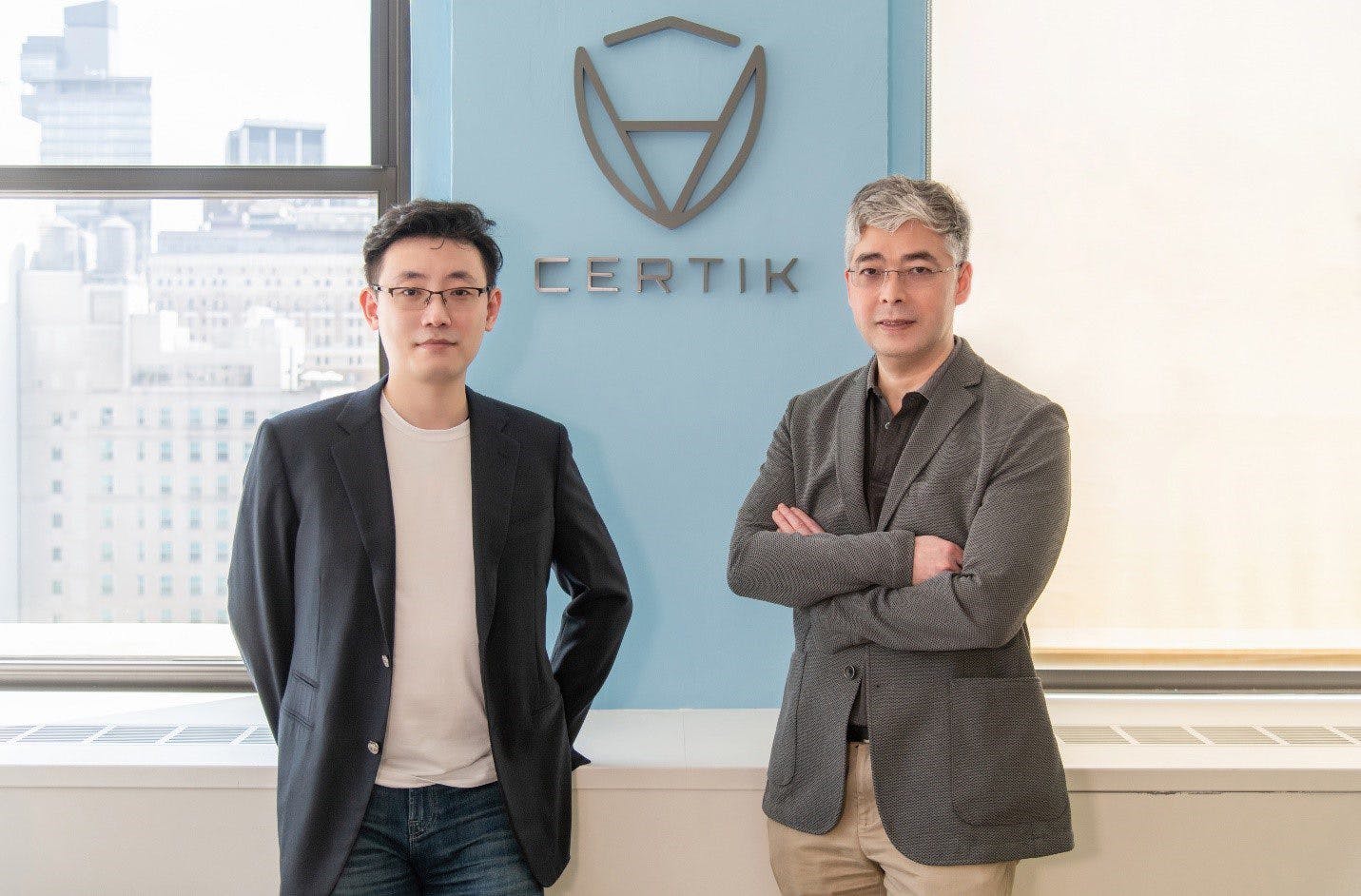Blockchain Security Firm CertiK Raises $37M Funding
The funding will be used to expand its security technology in the cryptocurrency and decentralized finance markets.

Columbia Professor Ronghui Gu (left), and Yale Professor Zhong Shao (right), cofounders of CertiK Source: Provided
- The company is also backed by IDG Capital, Binance, Lightspeed Venture Partners, Yale University, and others
- CertiK is one of the fastest growing organizations in the blockchain security space and has raised $48 million since its inception in 2018, including an $11 million funding round within the past year
CertiK, a blockchain security firm, announced a $37 million Series B funding round co-led by Coatue Management and Shunwei Capital, with participation from Coinbase Ventures, marking the largest single round of fundraising in the blockchain security space, the company said.
The company is also backed by IDG Capital, Binance, Lightspeed Venture Partners, Yale University, and others.
The funding will be used to expand its security technology in the cryptocurrency and decentralized finance markets.
The company does code auditing and has a platform called Skynet, which uses on-chain and off-chain data to provide real-time insights into the security of DeFi applications and to date has monitored over 2 million smart contract addresses and more than 2 billion on-chain transactions, it said.
“Decentralized finance has grown enormously over the last 18 months, giving millions of people access to innovative financial tools and savings products,” said Kai Jiang, a partner at Coatue Management. “With such rapid innovation, security is of the utmost importance.”
The NYC-based startup is one of the fastest-growing organizations in the blockchain security space and has raised $48 million since its inception in 2018, including an $11 million funding round within the past year.
The company was founded by professors at Yale University and Columbia University to use AI technology to audit and monitor blockchain protocols and smart contracts and has over $70 billion worth of digital asset value, including leading projects such as Aave, Polygon, Binance Smart Chain, Terra, Yearn, and Chiliz.
“The power of blockchain boils down to the power of the people,” said Ronghui Gu, CertiK co-founder and professor at Columbia University. “We’re proud to advance transparency in the space by providing the tools and resources – including our official audit reports – so the community can make sense of vital security information.”






